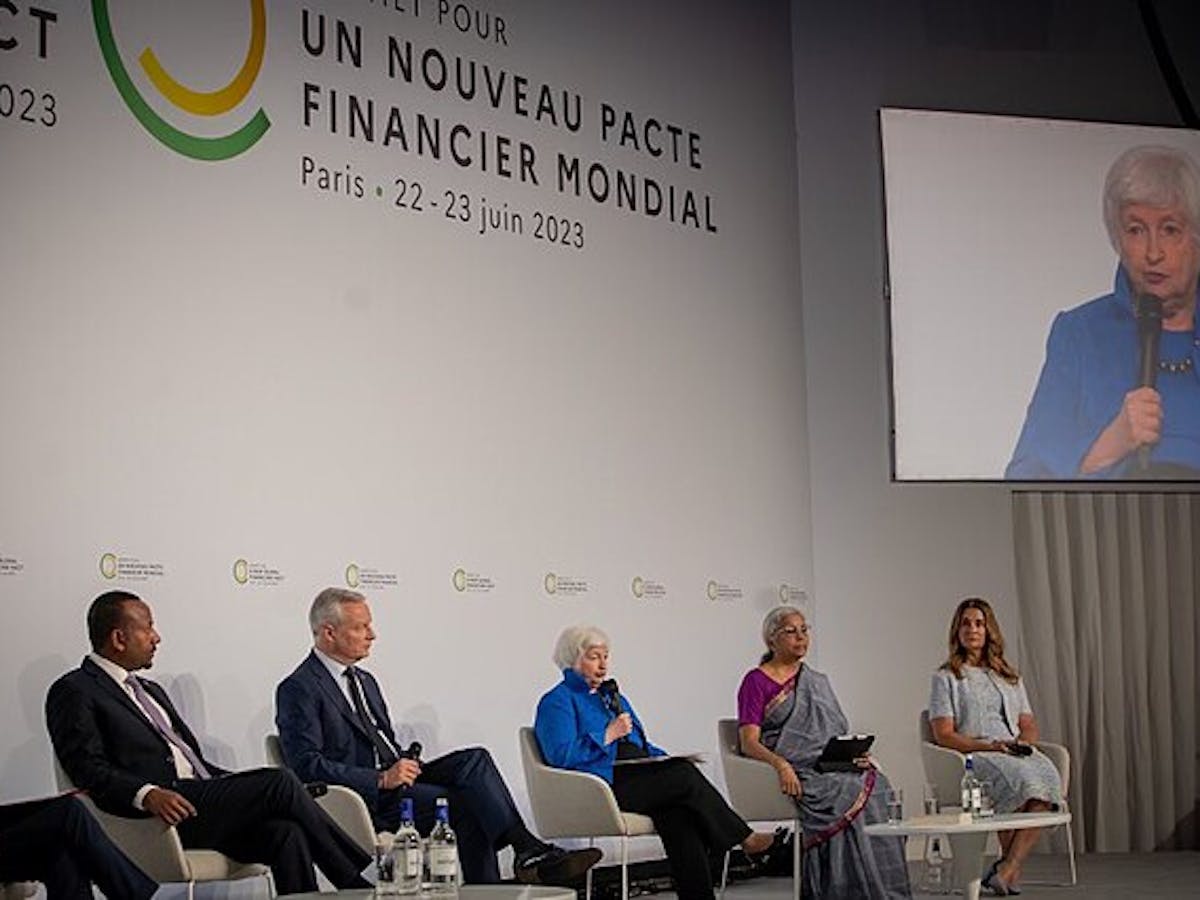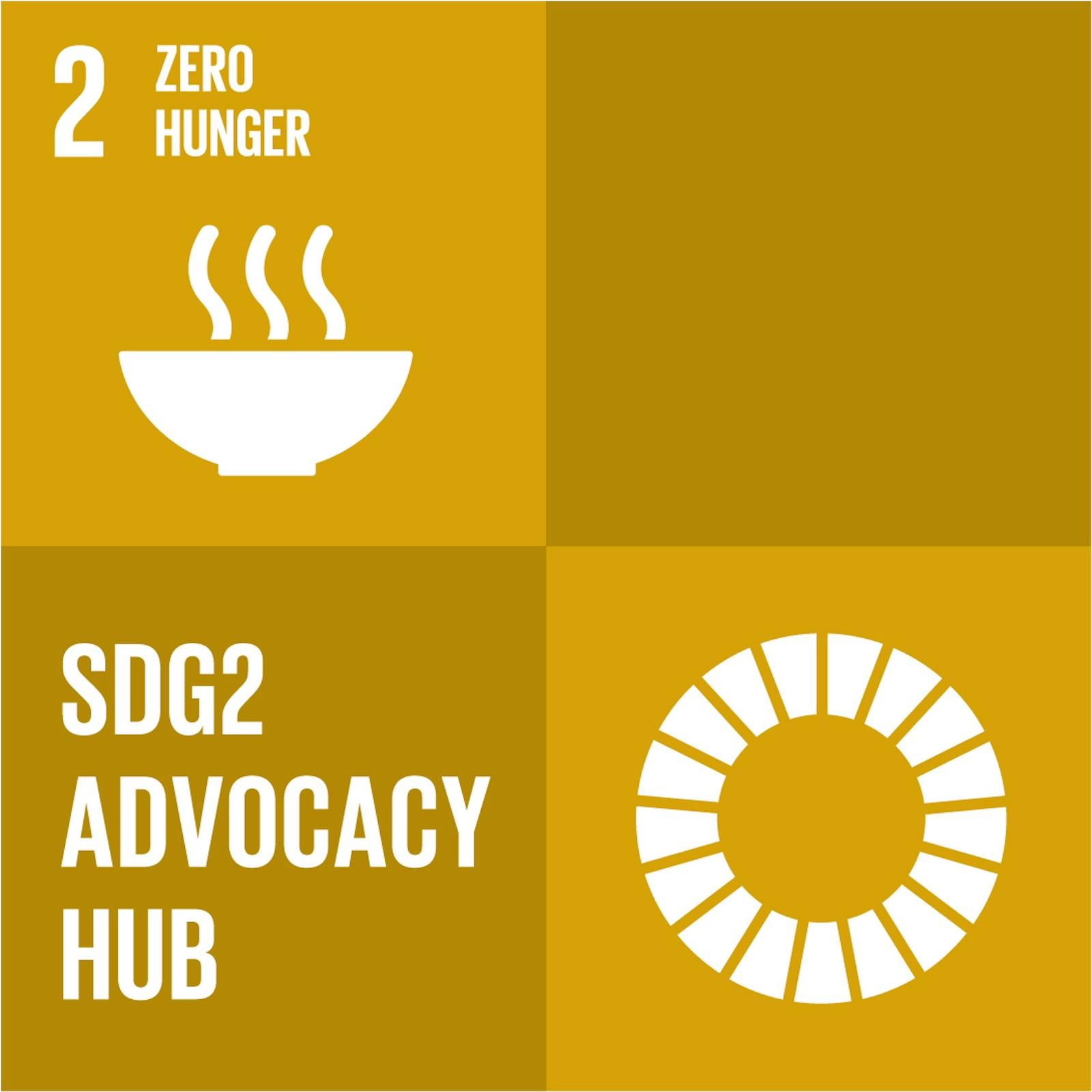Alice Macdonald, Campaign Director, Hungry for Action
Climate Activist Vanessa Nakate opened last week’s Summit for a New Global Financing Pact in Paris with a story. The story of a young boy in the Horn of Africa suffering from acute malnutrition. He tragically lost his life because he could not access the lifesaving support he needed. He is not alone. As she reminded the audience, ‘more than 46 million people in the Horn of Africa are facing crisis levels of food insecurity’.
This is the stark backdrop to which the Summit in Paris took place. World leaders came together to build momentum towards a new financial pact between North and South. Vanessa’s T-shirt summed it up clearly – ‘Invest Now’ but did leaders rise to the challenge?
Hungry for Action was backing demands from civil society for a 2% pact for people and planet as well as specific action to tackle the global food crisis – set out in our advocacy asks.
Whilst there were some encouraging signs, overall the summit fell short of what was needed.
So what did happen? On the positive side, in one of his first major appearances, World Bank President Ajay Banga announced key policy reforms, including incorporating suspension clauses into loan agreements for countries hit by natural disasters. We want to see this for countries hit by food crises too using the trigger mechanism envisioned in the Food Security Crisis Preparedness Plans.
There was also some positive momentum on debt with an agreement to cancel Zambia’s $6.3 billion in debt. This is critical to address the food crisis as former Malawian President Joyce Banda pointed out in an op-ed written to urge action at the summit. But, whilst the debt deal for Zambia is good news, the same must be done quickly for other countries in debt distress. It cannot be right that countries on the frontlines of the food crisis are drowning in debt.
Other positive moves in the right direction included progress on rechannelling Special Drawing Rights (SDRs). About $100bn (£80bn) is to be made available to low-income countries through this instrument provided by the International Monetary Fund. Hungry for Action wants to see some of this go into food systems financing mechanisms. There weresome positive signs that the long overdue commitment to provide $100 billion per year for climate mitigation and adaptation will be delivered but low and middle income countries have already waited far too long for this unkept promise.
Overall we did not see as many commitments to action as required including the failure to secure a new tax on the greenhouse gas emissions produced from international shipping.
And, whilst the summit was meant to be about forging a new agreement between North and South, many northern Heads of States simply failed to turn up at all.
However, we must see the convening of this summit in itself as a step on the journey – a journey that will continue this year offering leaders the opportunity to go much further, faster. So, whilst the summit has helped to generate some momentum the proof of its success will be in what happens next. The summit’s roadmap sets out some of the key moments –the G20 Summit in Delhi; the Africa Climate Summit, and the UN Sustainable Development Goals Summit in September; the IMF and World Bank Annual Meetings in Marrakesh in October; and COP28 in Dubai in November/December.
Another key moment in the fight against hunger will be the IFAD Replenishment which President Macron announced would be held in Paris at the end of the year. A welcome opportunity to secure much needed funds for agricultural development and climate adaptation.
What was also encouraging was the concerted effort of civil society and activists from across the world to put pressure on their leaders to act. Hungry for Action worked with Action Contre La Faim and the International Rescue Committee to put a spotlight on the need for urgent action for hunger.
Hungry for Action will continue to demand action to save lives, build resilience and secure the future. We’ll continue to advocate for the 5 asks we set out ahead of this summit for leaders to:
- Fund national plans to respond to food crises
- Suspend debt for countries with worsening food insecurity and nutrition
- Keep their promises on aid and climate finance
- Tax windfall profits and invest them in breaking the cycle of food crises
- Unlock the funds to save lives now and build resilience
As President Ruto of Kenya said at Global Citizen's inspiring Power our Planet concert on the margins of the Summit: "the solutions to make a difference are in our hands – what has gone wrong we have it in our power to get it right."

